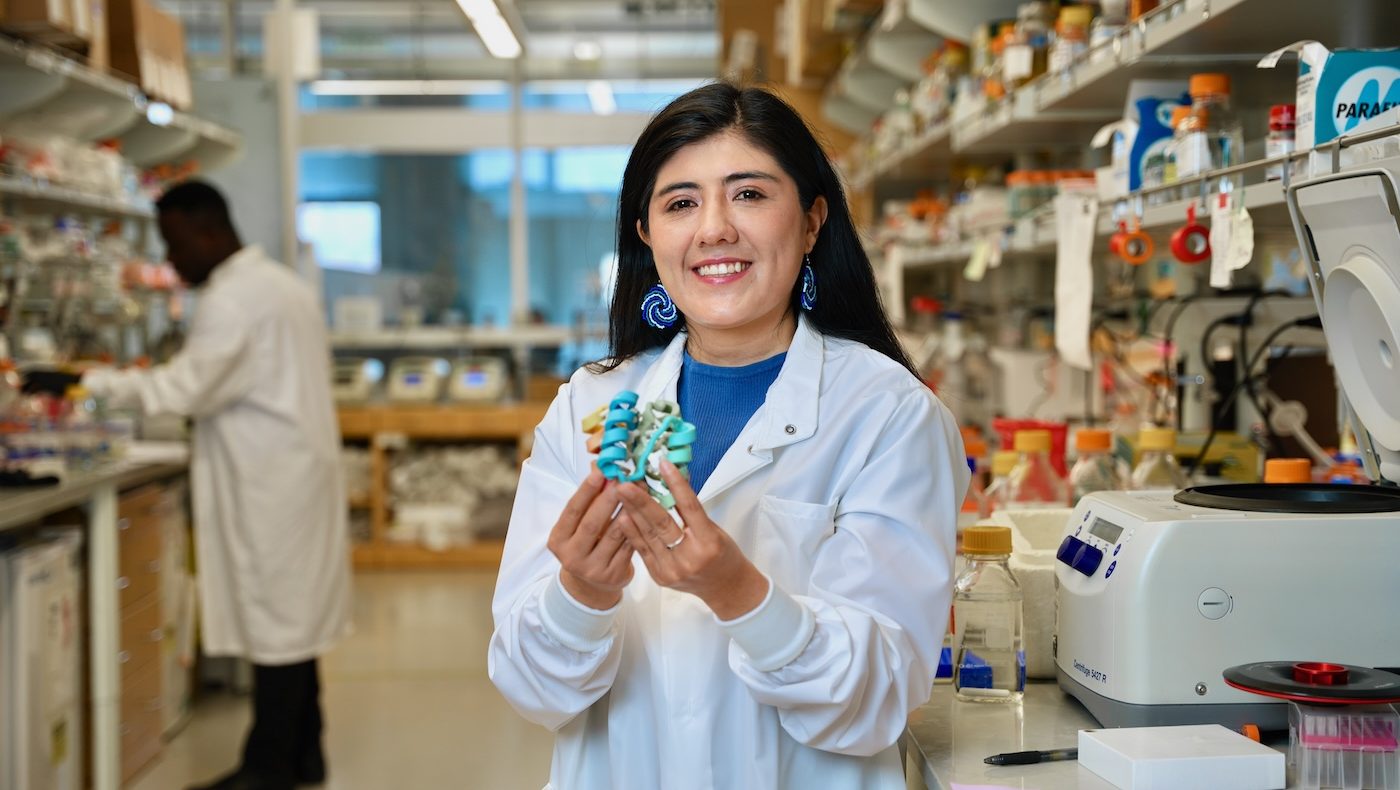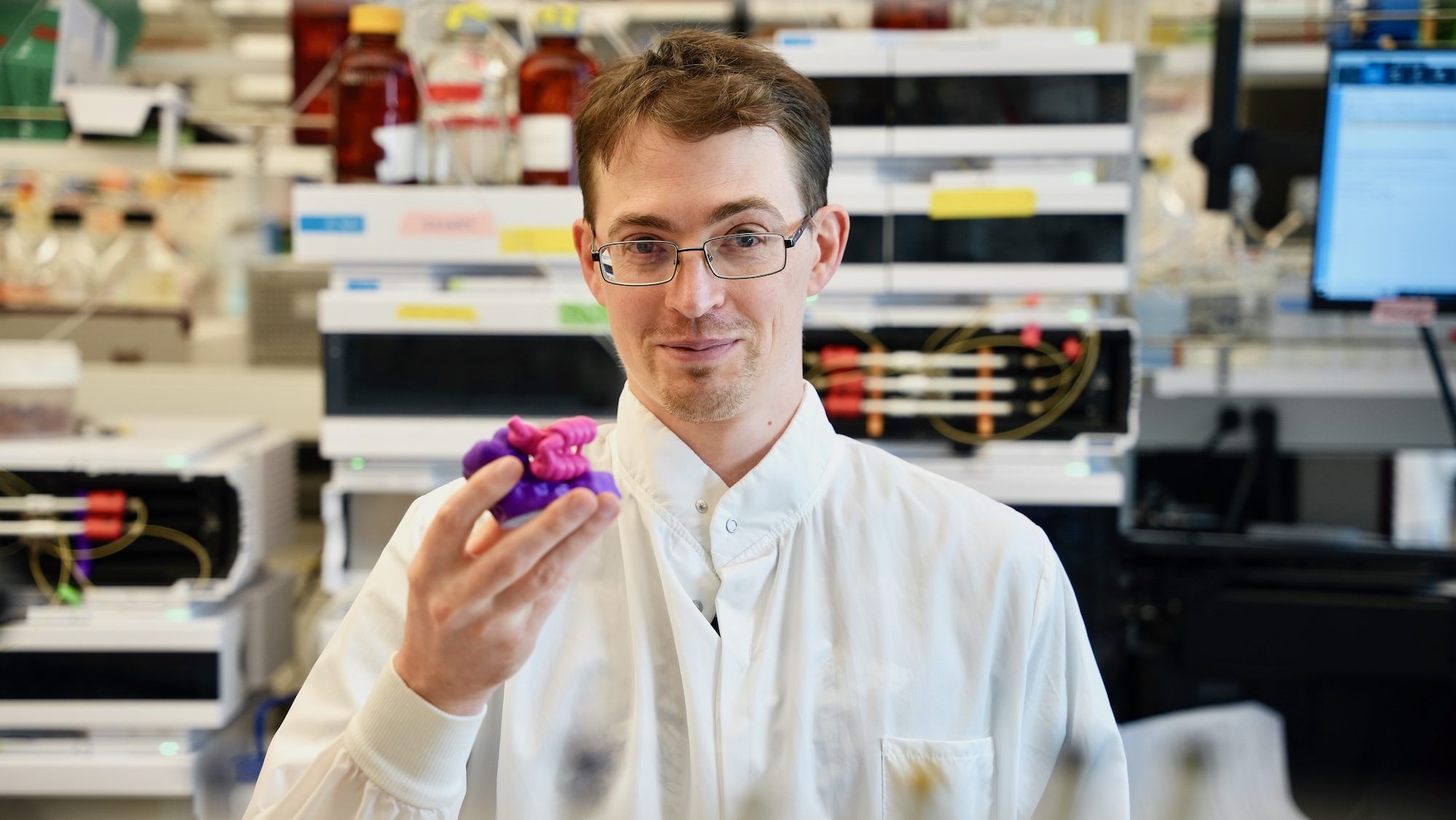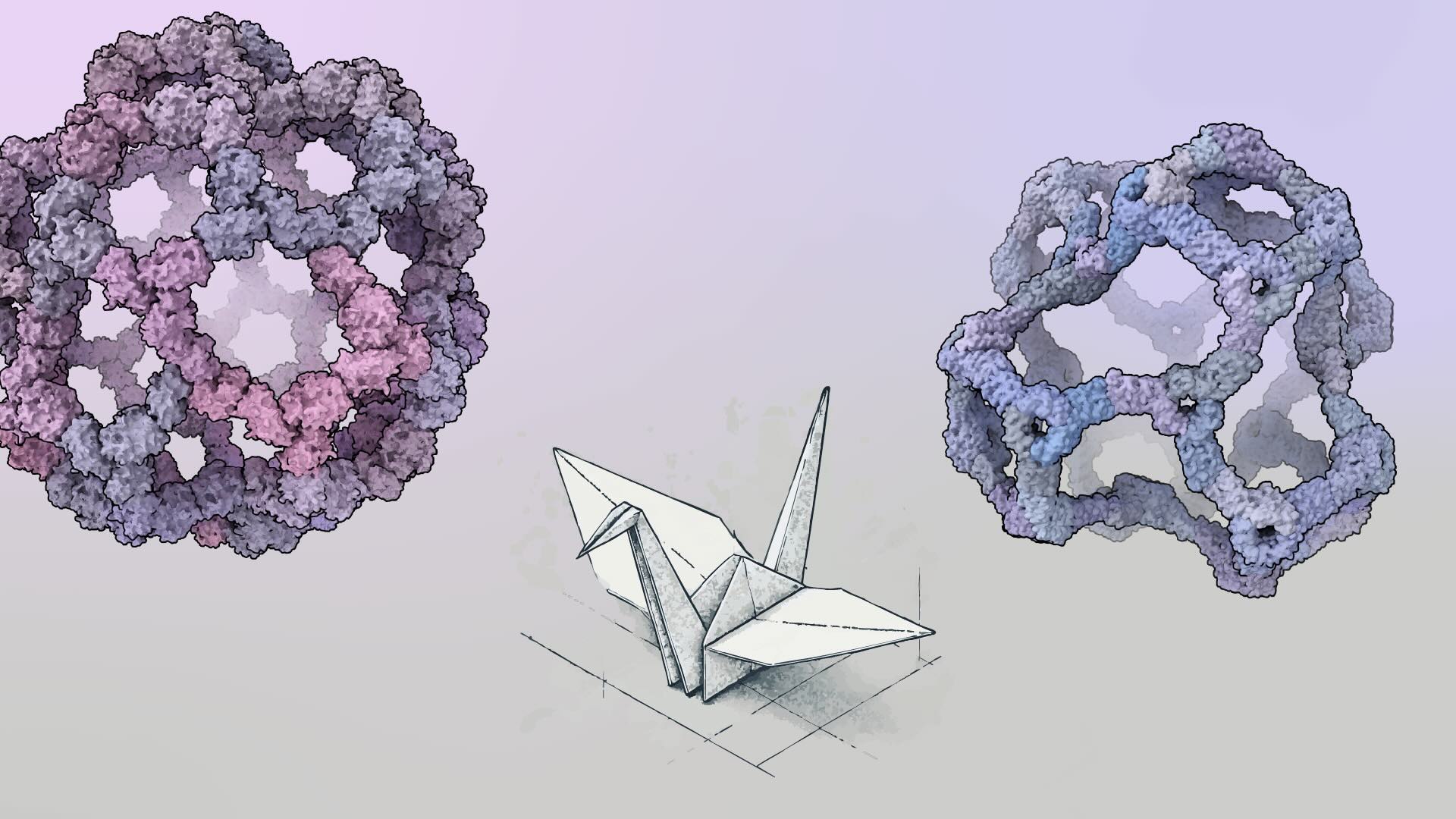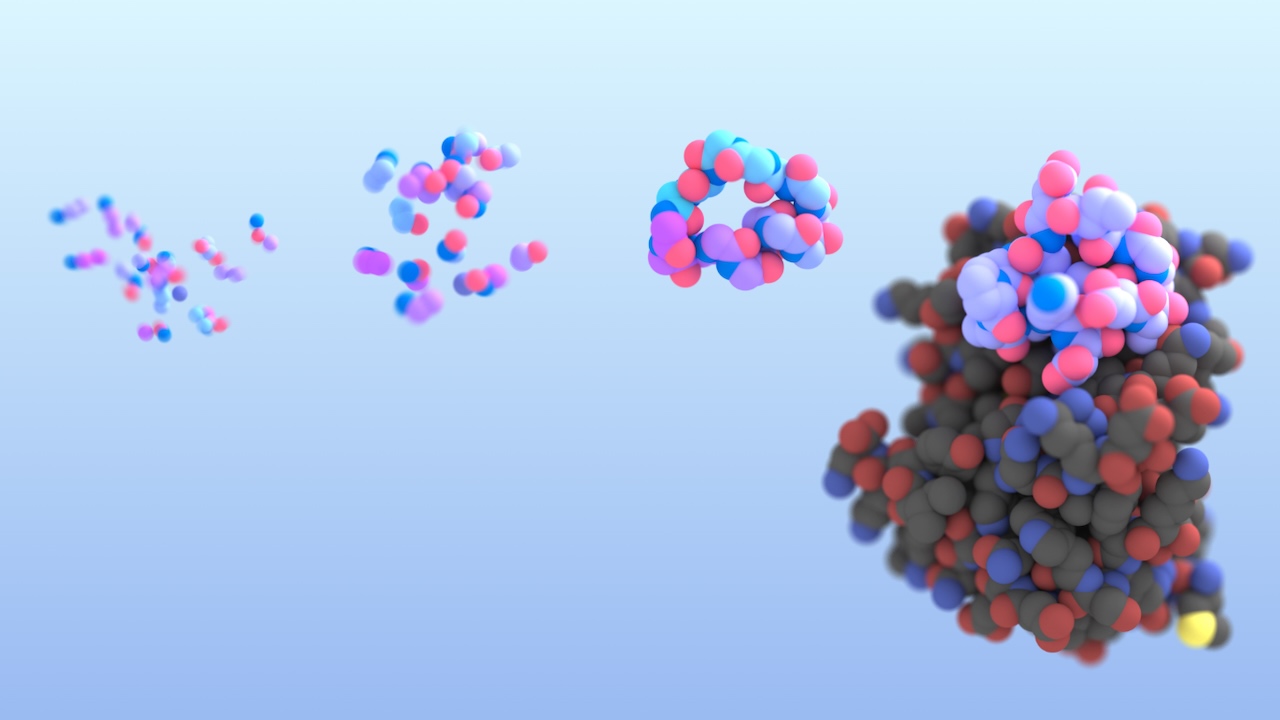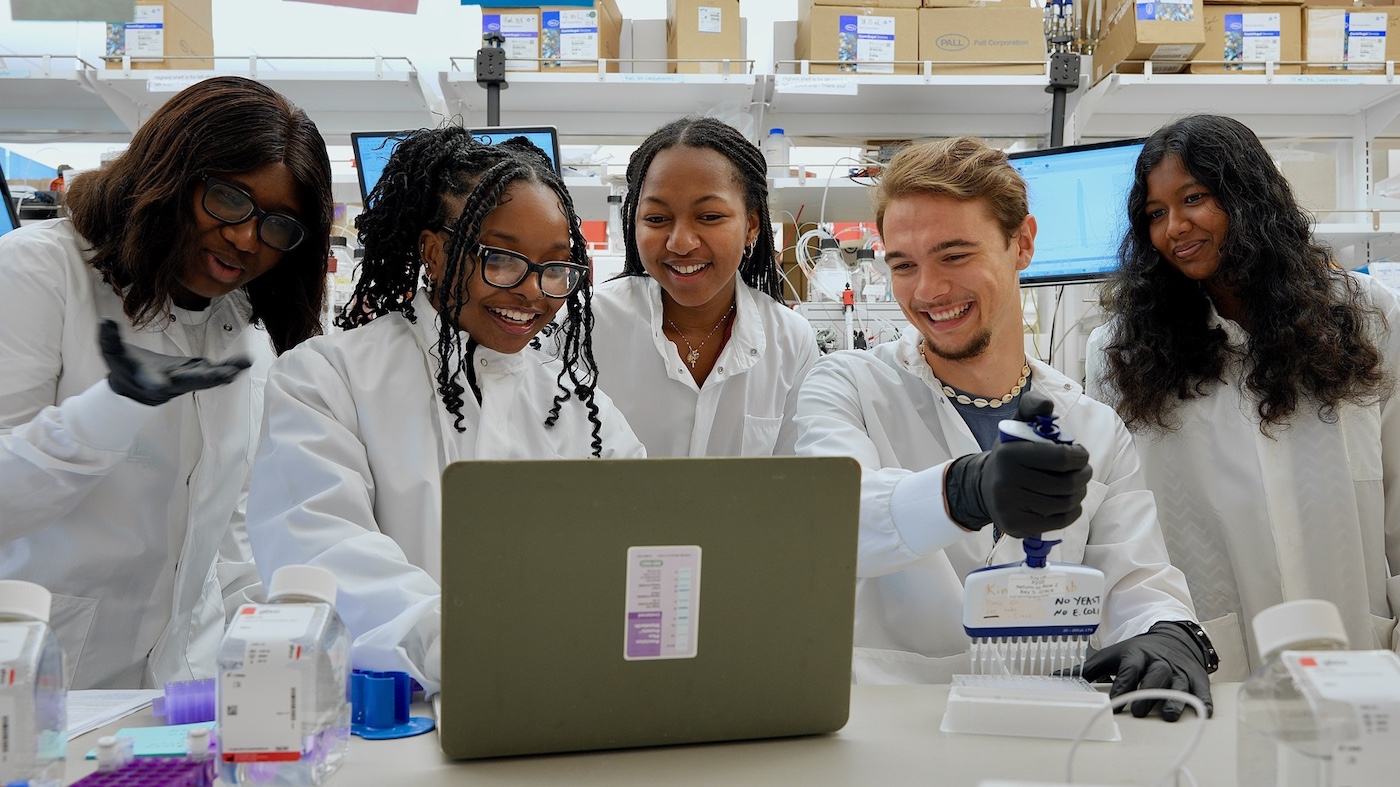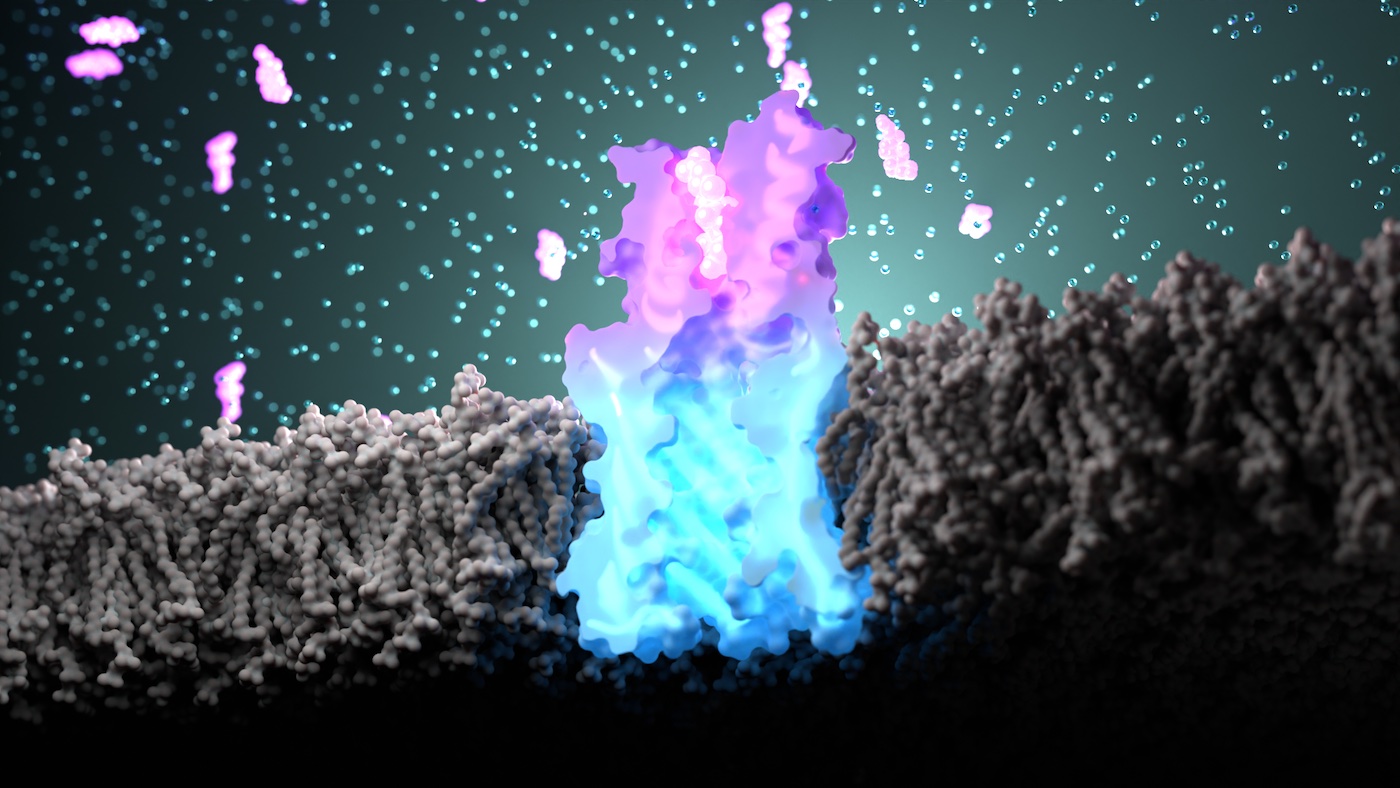Latest posts
-
Neutralizing deadly snake toxins
New AI-generated proteins that protect animals in the lab promise safer, more accessible antivenoms.
-
Derrick Hicks wins additional WRF translational funding
Funding will enable further development of Hicks’ minibinder conjugates as an improved option for radiotherapy cancer treatments.
-
Building bigger nanocages with less symmetry
New protein assemblies with hundreds of subunits dwarf common viral capsids.
-
Introducing RFpeptides
Generative AI based on RFdiffusion designs cyclic peptides with atomic accuracy.
-
Webinar: Protein Design Then & Now (1988-2024)
Computational protein design, once considered impossible, has blossomed into a transformative research field with implications for medicine, sustainability, and beyond. In a recent webinar hosted by David Baker, three pioneers in the field—Bill DeGrado, Steve Mayo, and Brian Kuhlman—shared their insights on the origins, evolution, and future of protein design.
-
David Baker wins Nobel Prize for protein design
“Baker has learned how to master life’s building blocks and create entirely new proteins.”
-
Summer undergraduate researchers design proteins at the IPD
“This is a place where a coffee chat can teach you more than a dozen papers.”
-
Designing synthetic smell receptors
“When we started with this idea a few years ago, many people thought it was impossible.”
-
Introducing the International Center for Enzyme Design
We’ve partnered with the Manchester Institute of Biotechnology to transform the landscape of enzyme design.
-
IPD scientists will pilot new National AI Research Resource
NAIRR aims to democratize advanced AI research by providing academics with large-scale computing resources.

